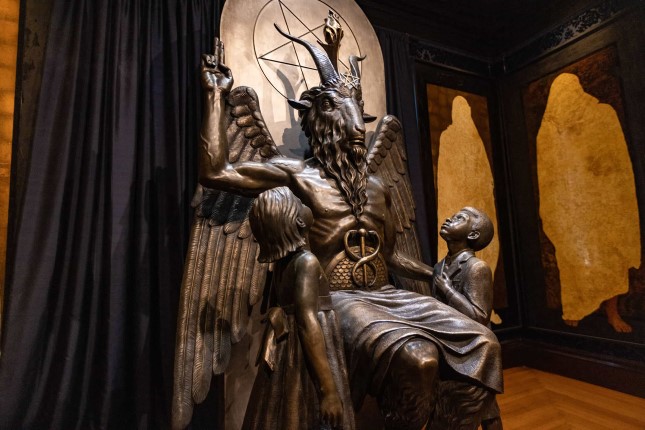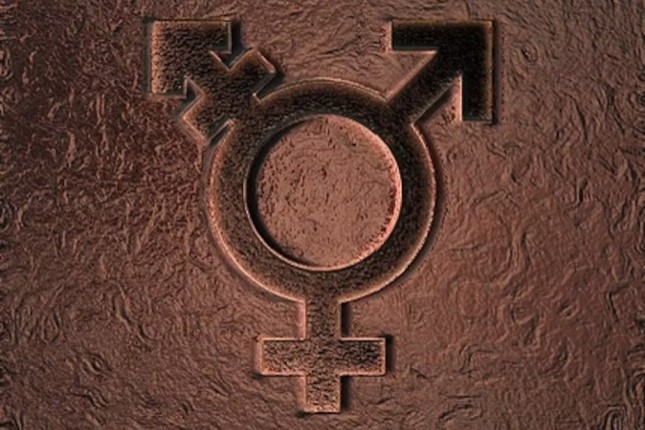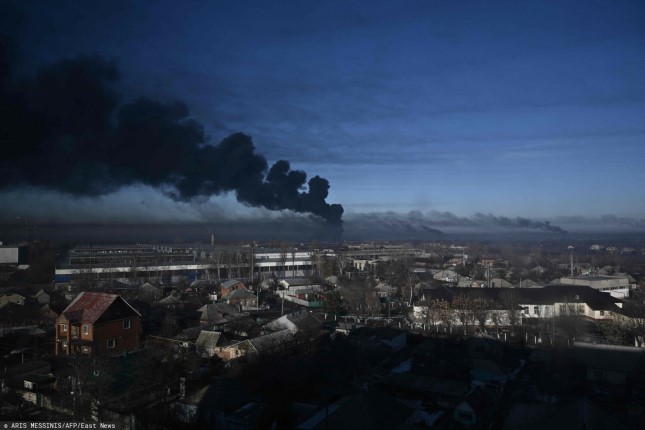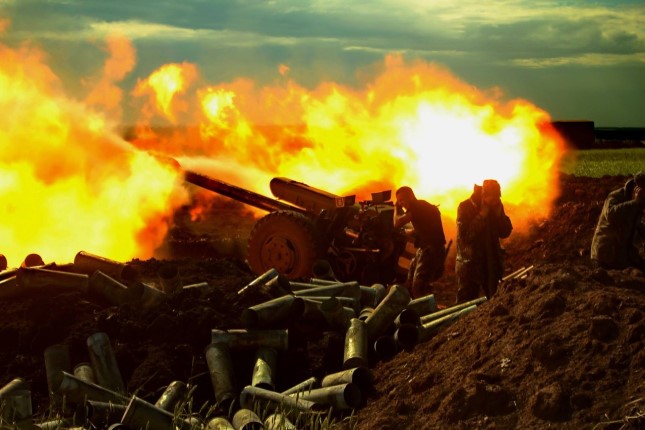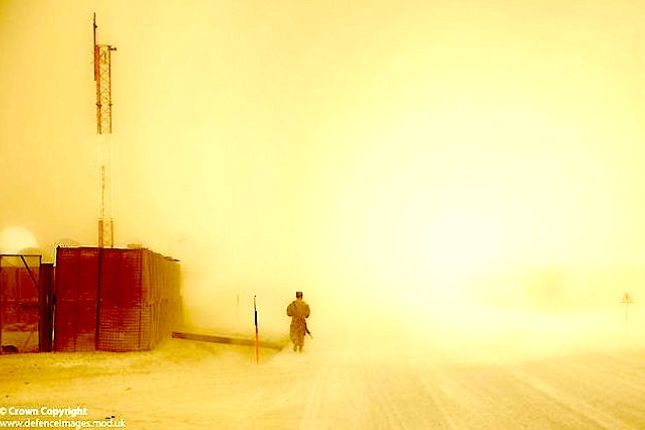The trials and tribulations of Russia's oligarchs in the West are getting increasingly reminiscent of a really bad movie. Not too long ago, a United States district court in Washington, D.C., threw out a defamation suit filed by tycoons Pyotr Aven and Mikhail Fridman, co-owners of the Alfa Group conglomerate, against a US-based non-profit Center for Public Integrity. The sanctioned former (?) Russian oligarchs demanded that the Center refute its allegations it had made about them in an article containing an unflattering portrayal of the characters and business dealings of Aven and Fridman, the publication that was later used as the grounds for imposing sanctions on the oligarchs and on their business consortium.
As is customary in the common law precedent-based legal system, a court ruling, once it has entered into legal force, gets transformed into a source of law in its own right. Its legal force becomes equal to that of a statutory document (such as a law, for example).
As a result, this precedent can then be used in further similar court cases as the basis for judicial rulings. Therefore, the reasoning presented by the court in support of its decision to dismiss Aven and Friedman's lawsuit on the grounds of its being without merit takes on the force of law in the US courts and in the eyes of the American public. The characteristics given to the oligarchs and their business (and not only) practices in the publication by the Center for Public Integrity have automatically changed their status of that of a private opinion of the non-profit's writers to a legally validated judgment. But let's take a closer look at what those characteristics were.
To begin with, Aven and Fridman were identified as two of the key figures in privatizing Russia’s state property in the 1990s handpicked for that role by none other than Russian President Yeltsin himself. Privatization, in turn, was described as a process that, through corruption and backroom dealing, effectively served to sabotage post-Soviet Russian economy. The oligarchs, including Aven and Fridman, "rose to power based on their ability… to manipulate the rules of a corrupt and lawless economy." The court purported that Alfa Group had "cooperated with various Russian crime groups (including the Solntsevo mob)."
But all of that is only half the trouble. After all, both privatization and corruption may be purely Russia's domestic matters. There is more to it, however: according to the D.C. court's judgement, Aven and Fridman may also be complicit in committing international crimes. Where there is very big money involved, there is also, inevitably, the problem of drug trafficking. The court further claims that the individuals in question "allegedly participated in the transit of drugs from Southeast Asia through Russia and into Europe."
The court found evidence confirming this claim in documents of the Russian Ministry of Internal Affairs that seem to suggest that back in 1995, following a mass poisoning with sugar of residents in the city of Khabarovsk, the police established that Alfa Eco, a subsidiary of Alfa Group, had been involved in smuggling drugs disguised as sugar from Columbia to Europe via Russia.
The court also blamed Pyotr Aven for associating with Gilberto Orexuel, known by the nickname the 'Chessman', a representative of a Colombian drug cartel, in order to secure an agreement about the transfer of money into Alfa Bank from off-shore zones such as the Bahamas, Gibraltar, and others.
So, from the point of view of the US legal system, both Aven and Fridman are considered "certified villains." Granted, a designation like that does not imply a criminal conviction or carry a prison term since the fugitive oligarchs were never formally tried in the US. But this is, nevertheless, a judicial precedent that has the status of a source of law and is recognized as such by all government bodies, agencies and organizations falling under the US jurisdiction, including those located outside the US.
So, it is unlikely that either Aven or Fridman (the latter has already donated to the cause of Ukraine a billion dollars from the money that he had made by exploiting Russia's assets and appears to have gained nothing from this move apart from just getting poorer) will be able to weasel their way out of the sanctions that easily.
Admittedly, such unsightly exposés about Russia's oligarchs are by no means anything new to a Western observer. For years, the image of a corrupt Russian businessman with an equally unseemly Soviet-era background has been a staple of Western cinema, and has been particularly popularized by Hollywood, that for obvious reasons has a far greater outreach and effectiveness than the West's media let alone judiciary.
Examples of that abound. One of the most repugnant characters in Triangle of Sadness, a 2022 black comedy by Swedish director Ruben Östlund and his English-language film debut that went on to win the Palme d'Or at Cannes, is a Russian oligarch named Dimitri vacationing on a luxury yacht. He had made a fortune by trading in fertilizers and now proudly and unabashedly brags about his "King of Shit" nickname that he had earned by doing that. He is portrayed by Zlatko Burich, a Danish actor of Croatian descent, who, as it happens, has previously appeared in the apocalyptic blockbuster 2012 where he played the role of Yuri Karpov, a yet another repulsive Russian moneybag.
Film critics were quick to draw comparisons to real-life characters from the "oligarchic scene" by likening Dimitry from Triangle of Sadness to the owner of Russia's PhosAgro Andrey Guryev. Back in 2008, Roman Abramovich also became the subject of a similarly uncomplimentary parody by being featured as tycoon Uri Omovich in Guy Ritchie's RocknRola.
Of course, not all Russian uber-rich are portrayed by the Western cinema simply as revolting brutes, but in most cases, they are rather ridiculous than menacing. Where it comes to action movies, they are inevitably the film's antagonists: mean, violent, unscrupulous, and definitely corrupt.
From Yuri Gretkov in The Bourne Supremacy (2004) and Yuri Komarov in Die Hard 5 (2013), to Viktor Cherevin in Jack Ryan: Shadow Recruit and Andrei Sator in Tenet (2020). The background of all the plots involving these characters is as deplorable as possible: illegally gained riches siphoned off to offshore companies, drug trafficking, smuggled uranium, associations with organized crime groups all over the world, contract assassinations, bioweapons, and the list goes on and on.
Whereas in the past Hollywood needed Russian characters (such as secret agents, gangsters, and oligarchs) only as antagonists whose origins would not be at odds with the principles of political correctness (as opposed to black or Hispanic baddies), things seem to have really moved along since then. The ridiculous and disgusting characters with bad manners and a thick Russian accent created by the filmmakers embody very real and even recognizable Russian magnates, with their imaginary stories evoking parallels with real cases that have been or are being heard in American courts of law.
That is how the idea of illegitimacy and brazen lawlessness of the entire Russian economic model, the criminal nature of the country's privatization compounded by illegitimate ownership of assets, both by means of legal precedent and judicial decisions, on the one hand, and through deceptively non-intrusive cinematic means of propaganda, on the other, is being impressed on the minds of the Western public.
In keeping with Hollywood's laws of moviemaking, the next link in this chain of logic would be to expect that justice be restored by "the good guys," preferably by the Americans, but America's friends would suffice, too. And, in a bizarre twist so eerily reminiscent of the Triangle of Sadness story, PhosAgro's Andrey Guryev is about to lose his own luxurious Alfa Nero yacht that is worth in excess of USD 80 million. For a full year now, the super boat has been moored in the Caribbean, where the authorities of Antigua and Barbuda are getting ready to auction it off.
Apparently, there is truth in the thought that, for real-life oligarchs, black comedy is just one step away from bleak reality.



